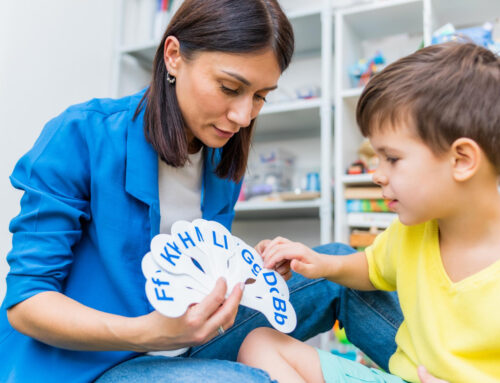Typically developing children get to a certain age where they have the cognitive capacity to understand consequences of their actions. They also begin to understand that certain actions based on bad behavior leads to discipline (i.e. hitting another sibling or a parent leads to getting favorite toys taken away from a certain time). The lines are fuzzy when determining the best age range to start disciplining your child with negative consequences if you are relying on information from parent and children’s health blogs. So, we go to the evidence-based research for answers.
According to the Canadian Paediatric Society (2004), typical children between the ages of 3 to 5 years old begin to understand that bad choices or behavior leads to negative consequences. Although their language capacity is still small, they can partially appreciate basic rules and why parents discipline them with timeouts or small punishments. So, if 3 to 5 years of age range for “typically” growing children, what does this mean for children with Neurodiverse spectrum disorder? Does a young child with Neurodiverse understand discipline for their actions similarly to their peers?
Many parents seasoned in neurodiverse-related literature and research may already understand what impairments are featured in Neurodiverse spectrum disorder (ASD) cases and how those impairments impact fully understanding rules and consequences. For those parents who are still grasping for answers, let’s first break down what it means for a child to receive a diagnosis of ASD. The DSM-5 states that a child can be diagnosed based on the following criteria:
Persistent deficits in social communication and social interaction across multiple contexts
- Deficits in social-emotional reciprocity
- Deficits in nonverbal communicative behaviors used for social interaction
- Deficits in developing, maintaining, and understand relationships
Restricted, repetitive patterns of behavior, interests, or activities
- Stereotyped or repetitive motor movements, use of objects, or speech
- Insistence on sameness, inflexible adherence to routines, or ritualized patterns of verbal or nonverbal behavior
- Highly restricted, fixated interests that are abnormal in intensity or focus
- Hyper- or hyporeactivity to sensory input or unusual interest in sensory aspects of the environment (American Psychiatric Association, 2013)
Besides social communication impairments and restrictive patterns, cases of ASD can also be paired with intellectual and language impairments which contributes to the severity of each case. In more simple terms, a child with ASD does have to exhibit symptoms laid out in the DSM-5, but each child’s severity varies thus their ability to understand things on any cognitive level will be different in each case.
What does this mean for disciplining a child with ASD who is misbehaving? If your child has ASD, you cannot expect typical punishments and durations to work. For a typically developing to understand consequences set up by parents, several factors need to line up including: the bond between the child and the parent, the child’s communication and language abilities, the child’s ability to understand what is “fair”, and the child’s ability to learn discipline from parents in order to self-discipline in the future (Canadian Paediatric Society, 2004).
Children with ASD not only have limited or different understanding of discipline, but they also “misbehave” for completely different reasons as compared to their peers. Poor behaviors such as self-inflicted injuries, hitting other family members, throwing toys, spitting out food, screaming at the top of their lungs, or refusing to complete tasks set up by parents and/or teachers often stem from internal processes that aren’t obvious. This may include: pain, sensory processing disturbances, anxiety, and stress. Typical methods for discipline not only may NOT work, but could also worsen the child’s behaviors.
Occupational therapy as well as many other disciplines can assist parents and their children with ASD by providing tailored plans for their family to counter poor behaviors. Consult with a specialist (i.e. pediatrician, psychologist, behavior specialist, occupational therapist, speech therapist, etc.) if your child is struggling with behaviors that you are at a loss for how to resolve on your own.
References:
Effective discipline for children (2004). Canadian Paediatric Society. Paediatric Child Health, 9(1): 37-41. www.ncbi.nlm.nih.gov. Viewed on Feb. 4, 2019. American Psychiatric Association. Diagnostic and statistical manual of mental disorders. 5th ed. Arlington, VA: American Psychiatric Association; 2013.





